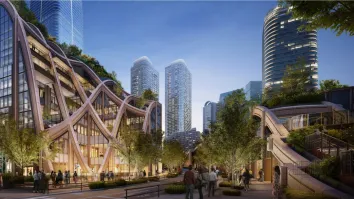Young Filipinos shift priorities to home buying post-pandemic
Economic growth and lifestyle changes drive market shifts.
The Philippines is on track to being an upper middle-income country in one to two years, following the 20% increase of homeownership among younger generations over the past five years.
John Rave Magalang, Project Manager at Kadence International (Philippines), attributed this increase to several factors, including the country’s robust economic performance and evolving societal values among Millennials and Gen Z.
"The Philippines is one of the fastest growing economies in Asia, with ADB scores of six to 7% growth rate this year," explained Magalang. He noted that this economic upturn has led to a rise in the number of middle-income Filipinos, enabling more disposable income despite rising housing and commodity prices.
A shift in lifestyle preferences influenced heavily by the pandemic has also played a crucial role. "Previously, buying a home was a dream for the future. Then the pandemic came, we realised the security and stability in having a room above our heads that we actually own," Magalang remarked.
This change, coupled with a growing desire for independence from extended family living, has prompted an increase in demand for affordable housing, which has been met with government and developer initiatives offering low-cost houses, flexible payment terms, and subsidies.
Differences in home-buying preferences between younger buyers and older generations such as Baby Boomers and Gen X are also evident. While older generations view homeownership primarily as a symbol of success and stability, younger Filipinos see it as both a legacy asset and an investment opportunity. "The information era also makes us more conscious regarding our carbon footprint, focusing more on sustainability, energy efficiency and being eco-friendly," added Magalang.
He further detailed that young professionals are turning towards condominiums in city centres due to their proximity to amenities and the appeal of modern, minimalist designs. However, the long-term aspiration for many remains owning a single-family home away from urban centres, seeking peace away from the hustle.
Technology has significantly impacted how younger Filipinos approach home buying. The ease of accessing financial information online, virtual property tours, and the ability to conduct entire transactions remotely have transformed the real estate landscape. "Young potential buyers can explore and compare properties with just a few swipes or clicks," said Magalang.


















 Advertise
Advertise


